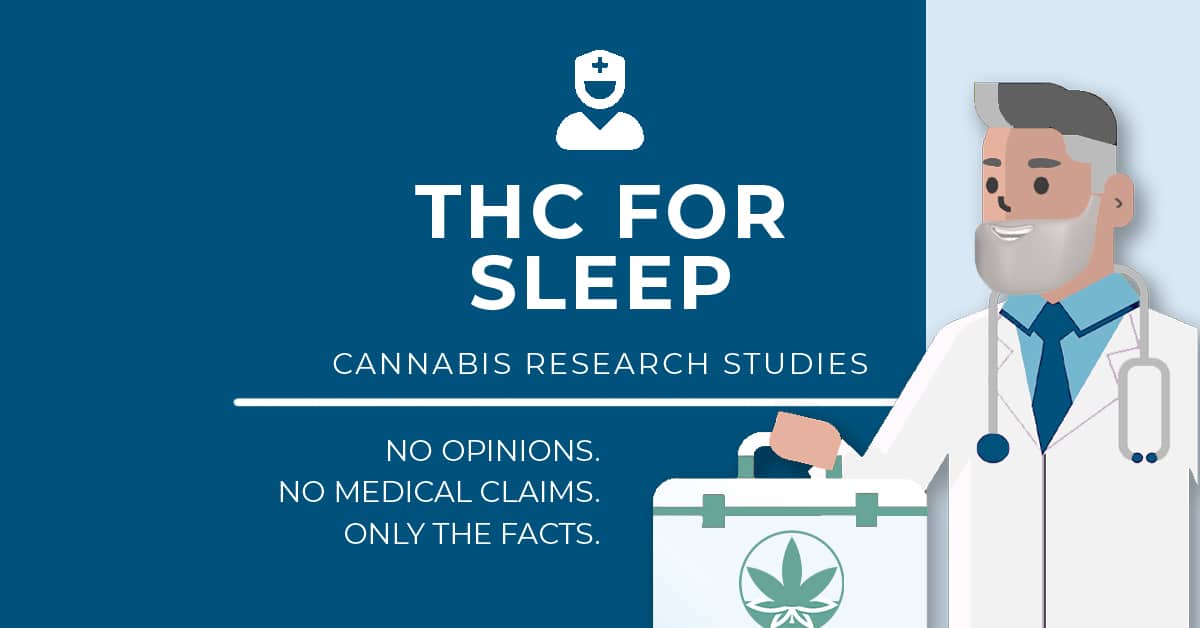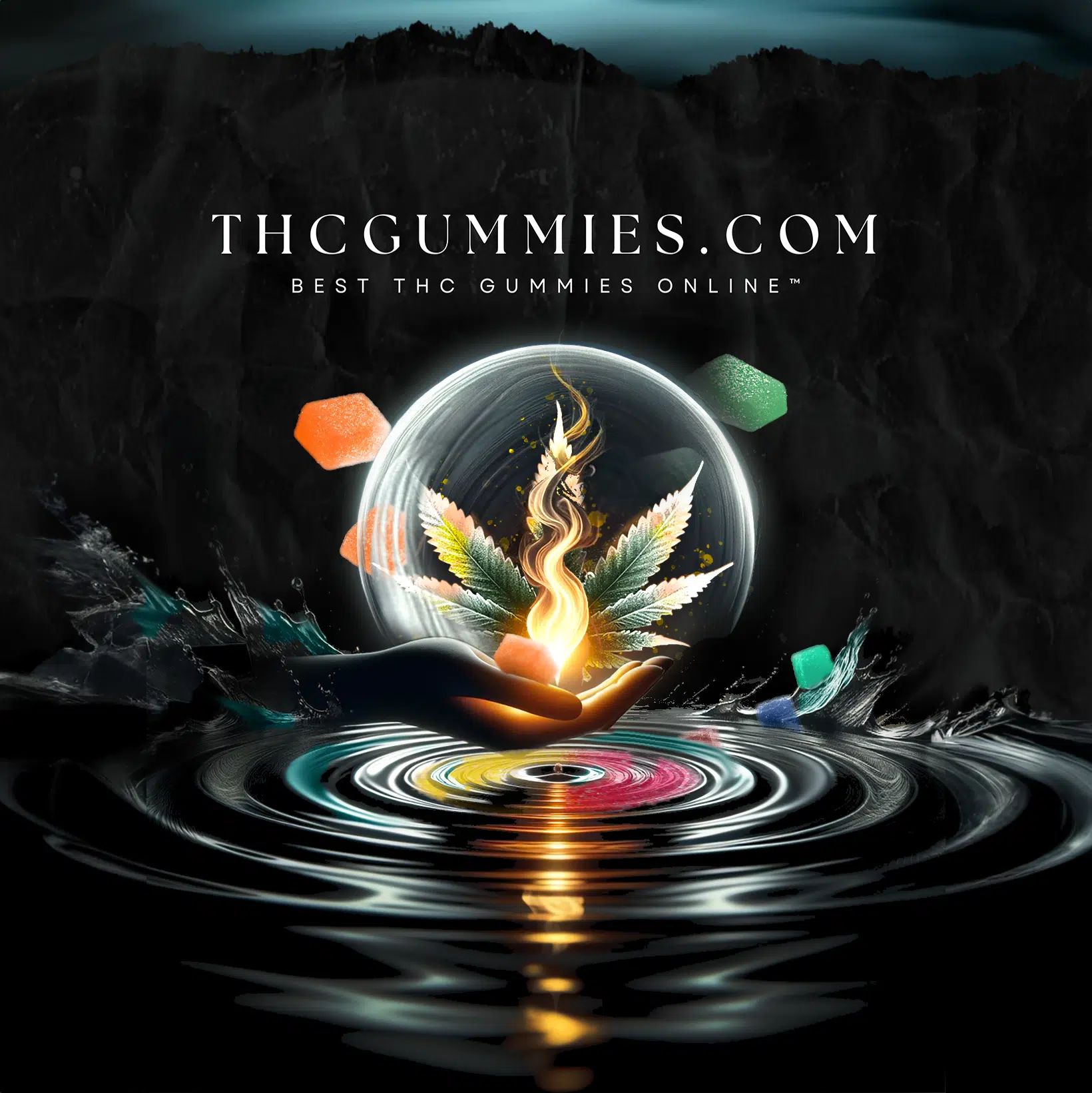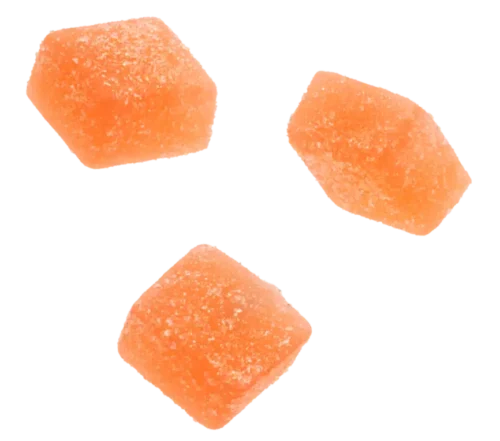THC Edibles For Sleep


Christopher Visser
Multi-Cannabis Business Owner
Christopher Visser, the Founder and CEO of Cannabidiol Life and THCGummies.com, is a distinguished figure in the CBD industry, recognized for his pioneering contributions since 2016. With over 120 published articles, Christopher has become a reputable cannabis researcher, writer, and author. He's built two prosperous cannabis ventures that collectively generated millions in annual sales. His in-depth analysis of numerous cannabis studies, collaboration with medical professionals, and personal engagement with thousands of customers underline his expertise and commitment to advancing cannabis understanding daily.
-
 Written By:
Christopher Visser
Written By:
Christopher Visser
- Published:
- Updated: February 8, 2024
- 3 Comments: Feed The Flame?
Getting enough sleep can sometimes feel like an unachievable goal. As a result, many individuals are turning to natural alternatives. One potential avenue being researched is the use of Cannabis and a specific compound, Tetrahydrocannabinol (THC); the most prevalent psychotropic compound in cannabis plants and highly noted for its tranquilizing, soothing, and sedative effects.
Table of Contents
- Tags: Sleep, Tetrahydrocannabinol (THC)
Despite its infamous reputation of THC, there’s mounting evidence that this psychoactive cannabinoid could be effective in helping consumers get to sleep faster – but does it work?
Let’s explore the latest clinical research studies surrounding the efficacy of using THC as a natural sleep aid.
The Two Phases & Four Stages Of Sleep
There are two phases of sleep, Non-REM sleep (NREM) and REM Sleep (REM). REM only has one stage, but NREM has three stages; N1-N3.
Every phase and stage of sleep is a scientifically-defined set of distinct physiological and neurological changes observed during a night’s rest. During each stage, an individual may experience different levels of consciousness and brain wave activity (alpha, delta, beta).
Going through stage 1 – stage 4 is considered one (1) sleep cycle, in which your body should go through four to six cycles over a full night’s rest.
PHASE 1: NREM
Stage 1 = Light Sleep (N1) accounting for 5% of a full night’s rest
Stage 2 = Deeper Sleep (N2), accounting for 45% of a full night’s rest
Stage 3 = Deepest Non-REM Sleep (N3), accounting for 25% of a full night’s rest
PHASE 2: REM
Stage 4 = REM Sleep accounts for 25% of a full night’s rest
Now that you know the phases and stages of sleep and how many cycles are necessary for proper bodily functioning, let’s talk about what stops you from going through all 4-6 sleep cycles.
Here’s What’s Impacting You From A Good Night’s Rest
Poor sleep and general sleep issues cause long-term effects and deprive you of a balanced lifestyle. By not being able to achieve deep sleep, you may be missing out on some serious health benefits that are causing you to feel a lot of emotions with feelings of fatigue.
The Division of Sleep Medicine at Harvard Medical School wrote an article on the External Factors that Influence sleep; here are the most common factors they shared:
Medical Conditions
Chronic Pain and other discomfort-causing conditions
Sleep Apnea
PTSD (Post-Traumatic Stress Disorder)
Diet – the food you eat and drink
Prescriptions – the medications you take
Sleep environment – Light effect greatly impacts circadian rhythms
Understanding what’s hindering you from achieving the best sleep possible will give you a blueprint of what you need to work on.
REM Sleep: Why It’s Vital
REM sleep is a stage marked by brain activity similar to that experienced during wakefulness and distinct from other stages of sleep. Characterized by Rapid Eye Movements, increased breathing rate, heart rate, and brain activity in the thalamus area responsible for alertness.
REM sleep plays an essential role in overall health and well-being, as it is known for helping to process emotions, consolidate memories, and form connections between stored memories.
Research suggests that REM sleep helps repair wear and tear on the body’s cells. When actively dreaming during this stage, it’s suggested that we can reprocess negative memories or experiences into more positive ones, which can help us mentally prepare for upcoming challenges.
More REM Information (put in toggle)
REM is an essential stage of sleep in which the brain processes and organizes information it encounters while awake. This organization of data is said to support improved learning and memory consolidation.
It’s also believed that REM sleep plays a role in consolidating emotional health by processing experiences and forming new synaptic pathways between neurons – effectively allowing the brain to restructure itself based on newly acquired information.
While the exact details of this process are still being studied, research demonstrates REM’s importance for maintaining physical and mental well-being.
Furthermore, people who don’t get enough REM sleep are potentially more prone to cognitive decline and an increased risk of depression or other psychiatric illnesses.
Clinical Research Studies On The Efficacy Of Using THC For Sleep Problems
A study comparing a single dose of 10 mg and 20 mg of THC gave the same relief as a 60 mg dose and 120 mg dose of codeine, respectively. THC appeared more sedating than codeine, and THC seemed to offer the study participants a greater sense of well-being with fewer anxiety symptoms than codeine.
THC acts on the CB1 receptors in the central nervous system, and consuming THC can yield a biphasic effect (low THC doses and high THC doses yield opposite results) on sleep – source.
THC at lower doses showed a reduction in the time it takes people to fall asleep once the lights are turned off (sleep onset latency) – source.
High THC doses-predominant cannabis has demonstrated a reduction in total rapid eye movement (REM) sleep and REM density – source.
THC has been linked to reducing the difficulty of falling asleep and offering a deeper, more restorative slow-wave sleep. – source.
THC has been associated with an increased total sleep time – source.
Recent cannabis users, in comparison to non-cannabis users, were more likely to report improvements for both short and long sleep – source.
The Endocannabinoid System & Its Role In Sleep-Wake Cycles
Endocannabinoid research seems to have uncovered a dynamic relationship between cannabis use, withdrawal, and sleep, with the Endocannabinoid System (ECS) getting more support for being essential for maintaining healthy circadian rhythms.
Research has demonstrated how disruption of the body’s natural sleep cycle leads to an alteration in endocannabinoid system (ECS) function, confirming its pivotal role concerning circadian rhythms.
With several reports corroborating the pivotal role of the ECS in regulating our circadian rhythms and sleep-wake cycles, it is essential to investigate how cannabinoids influence sleep.
Enhancing Sleep Benefits By Supplementing THC with CBD And CBN
In this section, I want to offer currently available information regarding the effects of cannabis extracts on sleep quality, particularly the following combinations:
THC and CBD
THC, CBD, and CBN
First, we will highlight the effects of each one of the cannabinoids above individually; then, we will discuss what research is showing regarding the effects when these cannabinoids are consumed together.
Individual Cannabinoids & Their Unique Effects On Sleep Quality:
Tetrahydrocannabinol (THC) — cannabis users may benefit from short-term THC use resulting in short-term drowsiness that offers quicker sedative effects – source. Long-term use may lead to diminishing effects due to tolerance build-up.
Cannabidiol (CBD) — at higher doses, CBD can have more of a sedating effect in comparison to low-dose CBD. CBD also showed an increase in total sleep time and may decrease the number of times you wake up during the night – source.
Cannabinol (CBN) — There is insufficient evidence to substantiate the claims that CBN, on its own, offers sleep benefits – source.
The Effects On Sleep Quality When Combining Cannabinoids:
Mixing a moderately concentrated dose of THC with a higher concentration of CBD seems to counteract the sedative effects of THC – source.
Volunteers who took a combined treatment of THC and CBN reported significantly more drowsiness effects than with ∆9-THC alone – source.
In summary, phytocannabinoids seem to offer a role in helping people get better sleep. However, the tricky part is finding the perfect potency of each cannabinoid when trying to create the most effective THC product combining each of these cannabinoids.
The Best Cannabinoid Ratio & Formula For Sleep
If you combine all of the research offered here, it might be beneficial to create a medical cannabis product that offers the following combination as a single dose:
a low dose of THC (2.5 mg)
a low dose of CBD (5 mg)
a moderate dose of CBN (10 mg)
The above is speculation, but it is based on clinical data. Nonetheless, more research is needed for the medical society to approve the efficacy of cannabinoids and their overall ability to be used or considered as a sleep medicine for better sleep quality.
Choosing The Right THC Sleep Product
When choosing the best THC product for sleep, there are two main things to consider; the species of the cannabis plant and the type of THC product that best suits your needs.
Cannabis Plant Species
The following are the three species of cannabis plants:
Indica species offer calming and relaxing effects.
Sativa species offer creative and energizing effects
Hybrid species offer a combination of both Indica and Sativa
Therefore, if you were looking for a THC edible that would best align with sleep-benefiting qualities, choose Indica Gummies.
Type of THC Product Best Suited For Your Needs
THC Edibles, THC smokeable products, and THC tinctures are the three most popular THC products on the market. Each product offers its unique benefits at various times of onset, so it’s important to know what you’re getting into and make an educated decision based on what you believe you need as opposed to what others recommend.
I’ll comprehensively explain the pros vs. cons of these top 3 THC products currently used to support higher-quality sleep.
THC edibles taste delicious and will offer longer-lasting effects (6-8 hours) but edibles, on average, take 30-45 minutes to kick in.
THC smokeable products have a very quick onset, with side effects being felt in under five minutes. However, the effects of these products are shorter compared to edibles lasting 2-4 hours on average.
THC tinctures are usually water-soluble or are mixed with alcohol to increase bioavailability and onset time. The taste is unpleasant, but the effects are usually felt between 15-30 minutes.
CONCLUSION
Let’s wrap up this article by going over what we learned.
There are two phases and four stages of sleep, and all of them are important for your health, with REM sleep being especially important.
Clinical research studies have shown that THC may be effective in getting you to fall asleep faster.
The Endocannabinoid System plays an important role in regulating the sleep-wake cycles. Furthermore, combining low-dose THC, low-dose CBD, and moderate doses of CBN, you may experience the best sleep benefits compared to consuming these cannabinoids individually.
When choosing a THC sleep product, it’s important to consider the species of the cannabis plant that the cannabinoid extracts were derived from, the type of effect you want, and the delivery method.
If you’re looking for an alternative to Ambien or other sleeping pills, Indica gummies are a popular choice.
Are you ready to try Indica gummies?

IGNITE RIPPLES OF CANNABIS WISDOM.
Be the catalyst!
SHARE THIS ARTICLE ON SOCIAL MEDIA!
SHARE ON SOCIAL MEDIA

Looking For Something Else?





3 Responses
Absolutely, Penny! Thank you for your interest. Do you have any questions about them? You can use this link to view our current options:
– CBDFx Lemon Dream CBD+Delta-9 Gummies
– Sweet Dreams CBN Gummies
Would like the Indica gummies for sleep. Have heard good things.
Thanks for sharing. I read many of your blog posts, cool, your blog is very good.